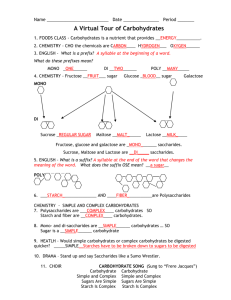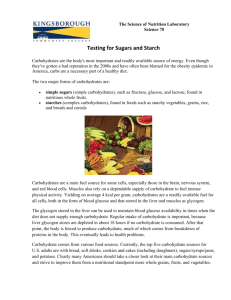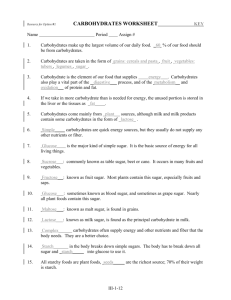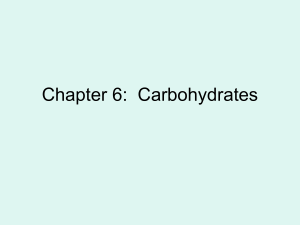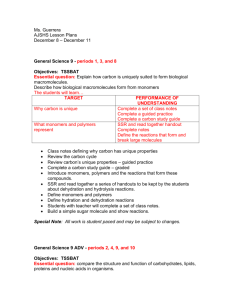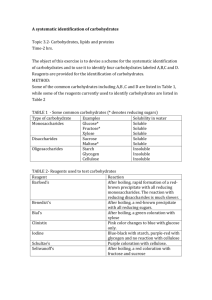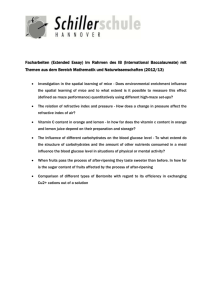Carbohydrates Worksheet: Simple vs. Complex Carbs
advertisement
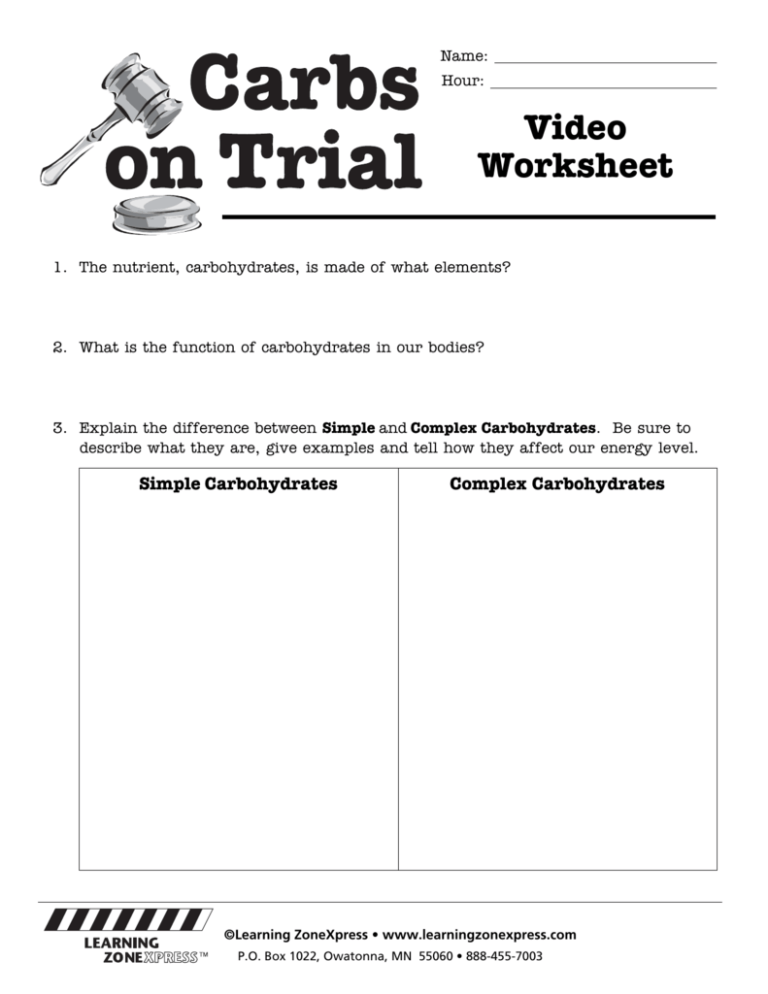
Name: Hour: Video Worksheet 1. The nutrient, carbohydrates, is made of what elements? 2. What is the function of carbohydrates in our bodies? 3. Explain the difference between Simple and Complex Carbohydrates. Be sure to describe what they are, give examples and tell how they affect our energy level. Simple Carbohydrates Complex Carbohydrates ©Learning ZoneXpress • www.learningzonexpress.com P.O. Box 1022, Owatonna, MN 55060 • 888-455-7003 4. Which carbohydrate is better for you, simple or complex? 5. Which carbohydrate digests faster, simple or complex? 6. Four grams of sugar equals _______ teaspoon(s). 7. Daily Recommendations of sugar for teens = __________________ . 8. List at least four types of sugars: 9. Which is a better choice, foods with natural sugars or added sugars? 10. Describe how we can use Food Labels to make healthy food choices. ©Learning ZoneXpress • www.learningzonexpress.com P.O. Box 1022, Owatonna, MN 55060 • 888-455-7003 Answer Key 1. The nutrient, carbohydrates, is made of what elements? Carbon, hydrogen, and oxygen. 2. What is the function of carbohydrates in our bodies? They provide energy. 3. Explain the difference between Simple and Complex Carbohydrates. Be sure to describe what they are, give examples and tell how they affect our energy level. Simple Carbohydrates Complex Carbohydrates Examples include: candy, pop, cookies, cakes, donuts, sweet rolls, pies… foods that are high in sugar. Examples include: whole grain breads, rice, pasta and vegetables. Simple carbohydrates are also known as sugars. Simple carbohydrates give your body short bursts of energy that is then followed by a drop in energy often resulting in a feeling of sluggishness. Complex carbohydrates are also known as starches and supply our body with energy, vitamins, minerals and fiber. Complex carbohydrates are the preferred source of fuel for our bodies. They give a long-lasting continuous source of energy. ©Learning ZoneXpress • www.learningzonexpress.com P.O. Box 1022, Owatonna, MN 55060 • 888-455-7003 4. Which carbohydrate is better for you, simple or complex? Complex carbohydrates (starches). 5. Which carbohydrate digests faster, simple or complex? Simple carbohydrates (sugars). 6. Four grams of sugar equals one teaspoon(s). 7. Daily Recommendations of sugar for teens = 14 tsp. per day . 8. List at least four types of sugars: Sucrose, Fructose, or Maltose Corn Syrup or High-Fructose Corn Syrup Brown Sugar or White Sugar Honey 9. Which is a better choice, foods with natural sugars or added sugars? Natural sugars 10. Describe how we can use Food Labels to make healthy food choices. The food label can be used to tell the difference between “bad” carbohydrates and “good” carbohydrates. Food labels identify nutrients that we want to get plenty of, therefore helping to make healthy food choices. Food Labels also help identify those foods high in fat, calories, and sugars that we may want to limit in our diets. The ingredient list can help identify types of sugars that may be in a food. If a sugar is one of the top three ingredients it is considered a high-sugar food. ©Learning ZoneXpress • www.learningzonexpress.com P.O. Box 1022, Owatonna, MN 55060 • 888-455-7003
